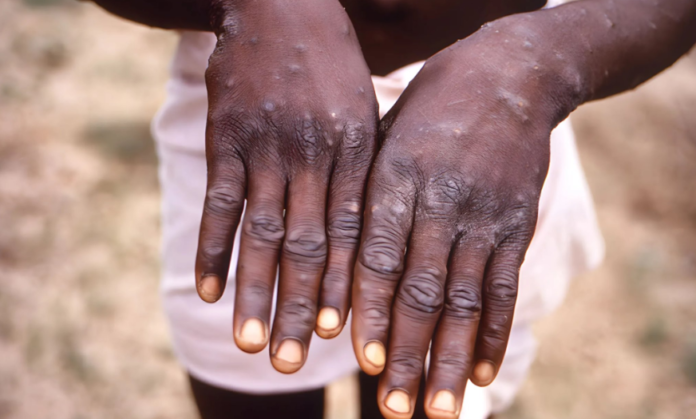Pakistan’s Khyber Pakhtunkhwa health department has reported the detection of three cases of mpox (formerly known as Monkeypox) in patients arriving from the United Arab Emirates. This follows a recent World Health Organization (WHO) declaration of the outbreak as a public health emergency of international concern due to a new variant of the virus.
While Pakistan has previously encountered mpox cases, it is currently unclear which variant of the virus was identified in these latest patients. The WHO’s Director-General, Dr. Tedros Adhanom Ghebreyesus, has classified the recent surge of mpox cases in the Democratic Republic of the Congo (DRC) and other African countries as a Public Health Emergency of International Concern (PHEIC) under the International Health Regulations (2005).
Also Read: Mpox Reclassified as Global Health Emergency: What You Need to Know
The declaration followed advice from an IHR Emergency Committee of independent experts who reviewed data from WHO and affected countries. The committee concluded that the outbreak poses a significant threat, with the potential to spread further across Africa and potentially beyond.
The WHO is scheduled to discuss the outbreak in an emergency committee meeting. The mpox outbreak, which began in 2022, has been classified as an “acute” Grade 3 emergency, the highest level of classification, indicating an urgent need for action. The outbreak has continued to spread across West, Central, and East African countries, with cases also reported in the Americas and Europe.
Key Points:
- Mpox Cases in Pakistan: Three cases of mpox have been detected in patients arriving from the UAE, as reported by the Khyber Pakhtunkhwa health department.
- WHO Declaration: The World Health Organization (WHO) has declared the mpox outbreak a Public Health Emergency of International Concern (PHEIC) due to a new variant of the virus.
- Ongoing Emergency: The WHO’s emergency committee has classified the outbreak as an “acute” Grade 3 emergency, the highest level of alert, signaling the need for urgent action.
- Global Spread: Since its onset in 2022, the mpox outbreak has affected 116 countries, with a recent surge in cases reported globally, including in Africa, the Americas, and Europe.
- Unclear Variant: It is currently unclear which variant of mpox was identified in the recent cases in Pakistan.
- WHO Response: The WHO Director-General will issue temporary recommendations to countries based on the committee’s advice and ongoing data.
What is Monkey Pox
Mpox, formerly known as monkeypox, is a viral disease caused by the mpox virus, which belongs to the Orthopoxvirus genus. Here’s a brief overview:
Key Points About Mpox:
- Symptoms:
- Early Symptoms: Fever, headache, muscle aches, backache, swollen lymph nodes, chills, and exhaustion.
- Rash: A characteristic rash often appears within 1-3 days after the fever starts. It usually begins on the face and then spreads to other parts of the body, including the hands and feet.
- Transmission:
- Mpox can spread through direct contact with the blood, bodily fluids, or skin lesions of infected individuals or animals.
- It can also be transmitted through respiratory droplets from prolonged face-to-face contact.
- Outbreaks:
- Historically, mpox has been primarily reported in Central and West African countries.
- Recent outbreaks have occurred outside these regions, including in the Americas and Europe, leading to heightened global concern.
- Diagnosis and Treatment:
- Diagnosis is typically confirmed through laboratory testing.
- There is no specific treatment for mpox; care is generally supportive and aims to manage symptoms. Vaccination with the smallpox vaccine may offer some protection.
- Public Health Response:
- The World Health Organization (WHO) has declared the mpox outbreak a Public Health Emergency of International Concern (PHEIC) in response to its spread and the emergence of new variants.
- Prevention:
- Preventive measures include avoiding contact with infected individuals or animals, practicing good hygiene, and using personal protective equipment (PPE) in affected areas.
Mpox is a zoonotic disease, meaning it can be transmitted from animals to humans, and it is closely related to the virus that causes smallpox.



